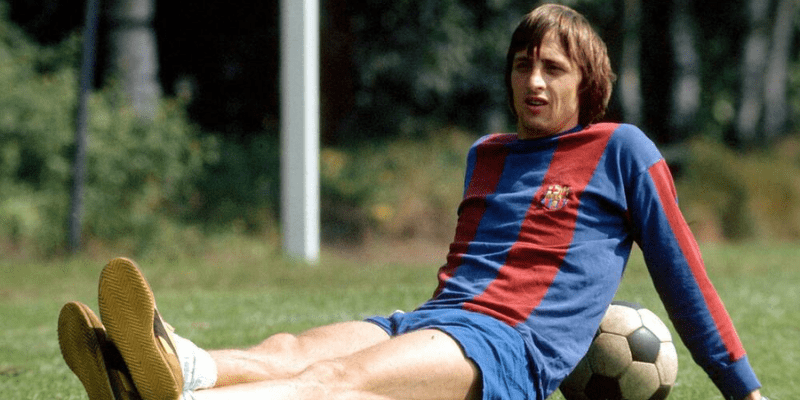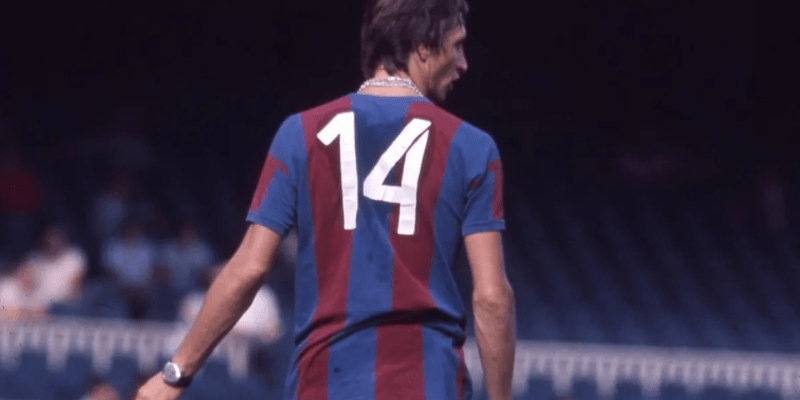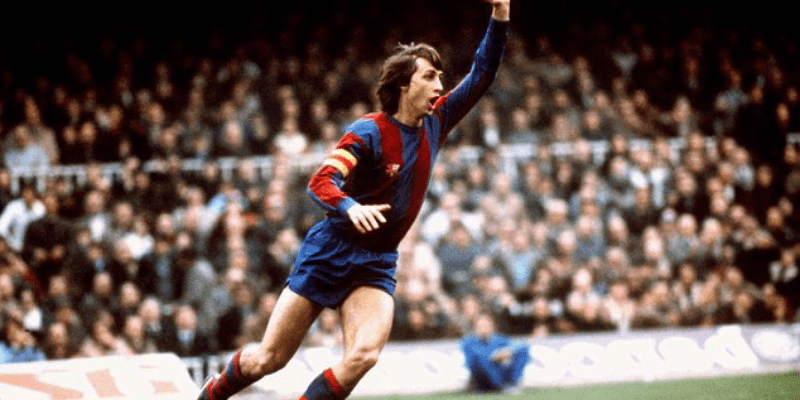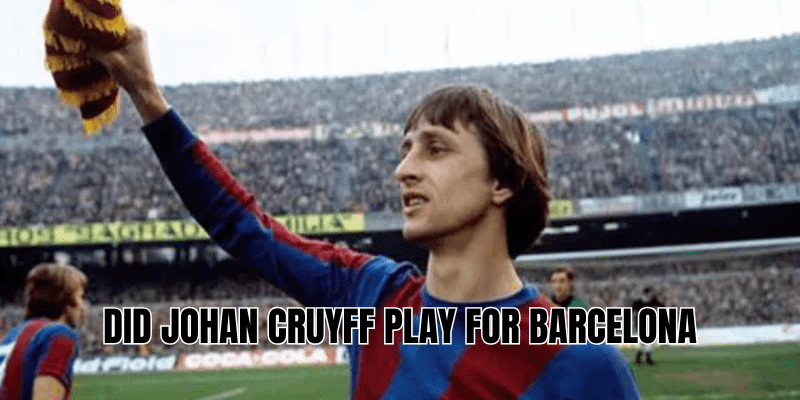In the grand tapestry of football legends, few names burn brighter than Johan Cruyff. So when fans ask did Johan Cruyff play for Barcelona, the answer is a resounding yes — and his time at Barça wasn’t just a chapter, it was a turning point in the club’s identity and in world football. In this article, CantoKick will take you through when, how, and why Cruyff’s stint at Barcelona mattered — both in stats and in soul.
Early life and career before Barcelona

Johan Cruyff was born in Amsterdam on April 25, 1947, and began his football journey in Ajax’s youth ranks. He made his professional debut with Ajax in 1964 and quickly became the focal point of one of Europe’s most dazzling teams. Under Rinus Michels’ guidance, Cruyff embodied the “Total Football” philosophy — fluidity, positional interchange, high intelligence on the pitch. During his first tenure at Ajax (1964–1973), he won multiple Eredivisie titles, three consecutive European Cups (1971, 1972, 1973), and established himself as one of the best in the world.
He claimed his first Ballon d’Or in 1971, setting the stage for his legendary status. His Ajax performances attracted the attention of Europe’s top clubs, and in 1973 Barcelona made the move to bring him to Catalonia.
Cruyff’s transfer to Barcelona: the move that changed history

The summer of 1973 marked a watershed moment: Cruyff left Ajax to join Barcelona in a transfer that reportedly broke world records at the time. He refused overtures, he opted for Barça, aligned with his own ideals.
His arrival at Camp Nou was greeted with excitement, but also expectation. Barcelona had not won La Liga since 1960 — 13 years of drought. The club saw in Cruyff not just a star, but a catalyst. He was to be the spark that reignited Barça’s competitive edge.
Did Johan Cruyff play for Barcelona? — Stats & titles
Yes — and the legacy he left is profound.
Appearances, goals, and official matches
During his time at Barcelona, Cruyff made 180 official matches, in which he scored 60 goals. Beyond goals, he contributed with creative passes and influence on the pitch. (These numbers refer to official competitions, not counting friendlies or exhibition matches.)
In league play alone, he recorded 143 La Liga appearances and 48 goals. Cruyff’s time in Catalonia also overlapped with short loan spells and later returns to other clubs, but Barcelona remains where he left his deepest mark.
Titles won with Barça
Even though his stay wasn’t extremely long, it was fruitful. With Barcelona, Cruyff helped the club win:
- La Liga 1973–74 — ending the 13-year title drought
- Copa del Rey 1977–78
Those trophies, added to his performances, transformed him.
Playing style, influence, and legacy at Barcelona

When Cruyff walked onto the Camp Nou pitch, he brought more than goals. He brought a philosophy. His Barça teams played with intelligence, possession, and forward momentum — foreshadowing the style we now often associate with the club.
He adapted seamlessly to Spanish football, using his spatial awareness, passing range, and vision to orchestrate attacks. His influence went beyond position; he often acted as a playmaker, a goal threat, and a footballing brain.
Even in matches against Real Madrid, he delivered iconic moments — including a heel kick goal in a match vs Atlético that has since become folklore.
His legacy at Barcelona didn’t end when he left as a player. Years later, as coach (1988–1996), he laid the foundations of the “Dream Team,” introduced youth-centric policies, and fortified the club’s footballing identity. The DNA of contemporary Barça — tiki taka, emphasis on La Masia — bears traces of Cruyff’s influence.
Challenges, controversies, and exit from Barcelona
Cruyff’s time was not without friction. Differences with Barcelona’s board, contract disputes, and internal politics eventually prompted his departure in 1978. His final season ended with the Copa del Rey, but also with tensions behind the scenes.
Still, he remained emotionally tied to Catalonia — he named his son Jordi, adopting a Catalan name as a symbol of his bond. His post-playing role as Barça coach and advisor affirmed that even departure couldn’t sever his connection to the club.
Why his Barça era still matters today
- Identity and philosophy: Cruyff didn’t just join Barcelona — he reshaped its footballing identity. His attacking, possession-based style seeded the Barça we see decades later.
- Catalan symbolism: He embraced Catalonia culturally, making Barca more than just a club but a symbol of pride.
- Bridge between eras: His legacy connects the Ajax golden age with modern Barça success, influencing players and coaches across generations.
- Statistical benchmark: For modern fans wondering did Johan Cruyff play for Barcelona, the answer carries weight — he didn’t just play, he transformed.
Final Thoughts
In conclusion, did Johan Cruyff play for Barcelona? Absolutely — and he did so in a way that permanently anchored his place in football history. His time at Barça wasn’t a footnote; it was foundational. As a player, he delivered titles, style, and inspiration. As a coach, he shaped the DNA of the club for generations to come.
If you’re hungry for more on Cruyff’s player stats, coaching era, or his influence on modern tactics, stay with CantoKick. Dive dee, and football history — and never miss a chance to revisit the legend of Cruyff at Barcelona.



